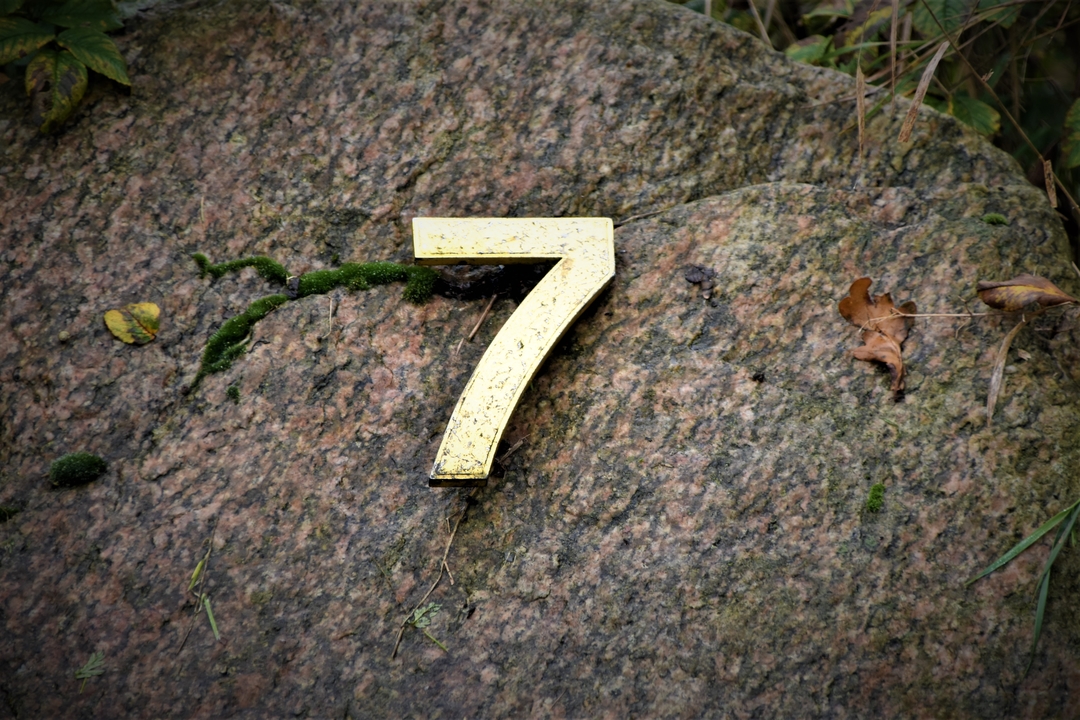Is 7 Really a Lucky Number?
Why is the number 7 considered lucky? With 7s all around us and woven through our history, it’s not surprising that so many people love the number 7.
Author:Sonia RavenwoodReviewer:Celeste PearlOct 10, 2022405 Shares8.2K Views

The number 7is an important number in society, culture, religion, and even psychology. When asked about their favorite number, the majority of respondents in survey after survey answer, “7”. So why does the number 7 have such a draw for us and why is it considered by so many to be lucky?
Powerful Connections To The Number 7
You know that luckis on your side when you see triple 777 on the slots and the coins come pouring out (or at least they used to, before everything went digital) but why else dowe have this association between luck and the number 7?
Well it turns out that the number 7 is all around us and forms a large part of our understanding of the world. It’s not surprising then that we value this number and consider it lucky.
There are 7 days in a week, which are named for the 7 classical planets: Monday (Moon), Tuesday (Mars), Wednesday (Mercury), Thursday (Jupiter), Friday (Venus), Saturday (Saturn), and Sunday (Sun).
- 7 colors of the rainbow: red, orange, yellow, green, blue, indigo, and violet
- 7 continents on the planet (as well as 7 seas)
- 7 wonders of the world (and 7 wonders of the ancient world)
- 7 deadly sins
- 7 notes on a musical scale
It’s commonly believedthat seven shuffles will fully randomize a deck of 52 cards, whereas strangely, an eighth shuffle will return it to its original order.
The Number 7 In Religion
In the Bible, God created the world in 6 days then rested on the 7th day. Biblical scholars consider the number 7 the numerical representation of completeness.
We say we’re in “seventh heaven” when we’re in a state of total bliss or happiness. But this term derives from Islam and Kabbala(Jewish mysticism) and is the highest heaven, where God and the most exalted angels dwell.
While Judaism speaks of the existence of 7 heavens, we see that is also mentioned in the Qur’an. Likewise, when Muslims make the pilgrimage to Mecca, they have to walk around the Kaaba seven times.
In Chinese culture, there are five elements: earth, fire, water, wood, and metal. When these five elements are combined with Yin and Yang, you get the number 7, which is considered the concept of perfect harmony in Confucianism.
The Number 7 In Mathematics
Seven is the only number among those we can count on our hands (1-10) that cannot be divided or multiplied within the group. It is a prime number, which means it can only be divided by itself and one.
The number 7 is odd and sometimes considered a unique “loner” number. This, in addition to being prime, makes it stand out to mathematicians (and regular people too). There’s quite a lot of superstition and number theory that goes along with becoming a prime, and not all prime numbers are treated as lucky.
Lucky Primes
The number 7 funnily enough is also part of a sequence of prime numbers called Lucky Primes. To get this list of lucky primes in number theory you sequentially remove numbers. First, you eliminate every second number. Then, out of the remaining numbers you remove every third number. The next number left would be 7, so every seventh number left would be removed. This can continue until eternity, but I’ll leave you a list of the first 10 lucky primes.
3, 7, 13, 31, 37, 43, 67, 73, 79, 127
A Happy Number
In number theory, there is the concept of a “happy number” that mathematicians have worked out is a number which eventually reaches 1 when replaced by the sum of the square of each digit. Seven is the smallest number that can give you a happy number.
The Number 7 in Psychology & Neurology
Perhaps people just think that seven is a lucky number and it all comes back to human psychology. In a psychological paper published by George Miller in 1956, The Magical Number Seven, Plus or Minus Two, he postulates that it is no coincidence that we see the number 7 all around us.
Memory studies have shown that humans can remember up to (but no more than) seven things at a time. A 2008 memory study even found that the brain produced the best information when the branches (dendrites) that receive stimulation related to the number 7. These findings suggest that we remember best in sevens because that is how our brains prefer to store data.
Why Is 7 Considered A Lucky Number?
It seems that when presented with the number 7 in so many natural, physical, historical, religious, and cultural forms, people have collectively decided that it couldn’t just be a coincidence. There has to be something more to it.
It’s clear that humans throughout history have been captivated by seven. The number 7 is all around us and woven into the tapestry of our minds. That surely makes it a special number — and just maybe a lucky one too.

Sonia Ravenwood
Author
Sonia Ravenwood is an accomplished writer with a profound passion for exploring spirituality, magical practices, and the significance of numbers.
She has published numerous works exploring spiritual growth, magical practices, and the significance of numbers on reputable platforms.
Her insightful content reflects her expertise and dedication, making complex concepts accessible and engaging for readers.
Prior to focusing on writing, Sonia held various roles in content creation and marketing, honing her skills in communication and storytelling.

Celeste Pearl
Reviewer
Celeste Pearl is an accomplished writer and expert in numerology, astrology, and spirituality.
With a Bachelor of Arts in Journalism and over 6 years of writing experience, Celeste brings a wealth of expertise to her articles, making complex topics accessible and engaging for readers.
Her passion for metaphysical sciences is evident in her insightful content, where she explores the depths of these subjects with clarity and depth.
Beyond her professional pursuits, Celeste enjoys delving into spiritual practices and connecting with nature for inspiration.
Latest Articles
Popular Articles
